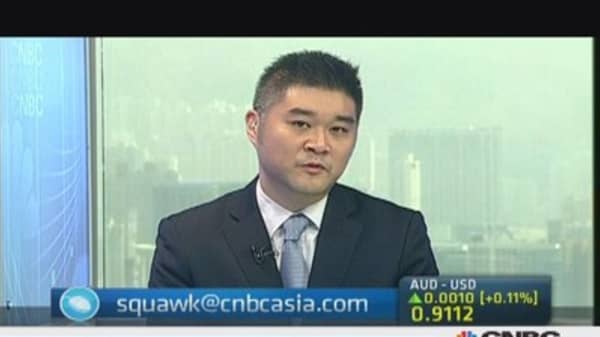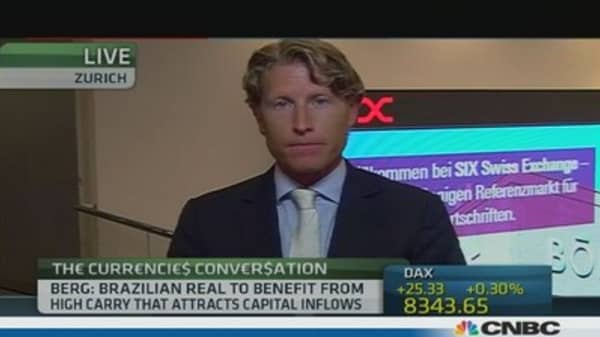As an interim step, emerging markets can use foreign exchange reserves to stabilize their currencies while keeping interest rates low. But, in the face of potentially tighter U.S. monetary policy, this is a risky strategy that most are unwilling to undertake.
Even Brazil, with its $370 billion war chest, has preferred to primarily deal with capital outflows by raising interest rates rather than aggressively spending reserves.
(Read more: Brazil's NewMiddle Class Boils Over With Discontent)
In the long run, the only sustainable solution is to make renewed efforts to reform FDI. Such measures will likely prove politically contentious, but will be necessary if emerging markets want to keep stable currencies, low funding costs, and consequentially maintain their economic growth trajectories.
India has made steps to embark down this path already, with the government announcing this month it will open up FDI in a dozen sectors of its economy, but regulations remain overly complex, and it is telling that despite a huge domestic consumer base, no retailer has applied for a license since the sector opened up to FDI in 2012.
(Read more: Four reasons not to 'throw in the towel' on India)
Elsewhere in Asia, FDI into Indonesia grew at the slowest pace in three years in the second quarter, and regulatory uncertainties ahead of the 2014 elections could mean this slows further still.
To prevent a major drop-off in FDI, which created 62 percent of the country's new jobs in the second quarter, politicians will need to provide more clarity on the future investment climate. Meanwhile, to ensure sustainable and efficient growth in the future, China will need to open up further to FDI in its domestic and service economy, and not just in trade-related sectors that have spurred its economy so far.
Continental neighbors such as Korea, Hong Kong, Singapore, and Taiwan all offer examples of economies that have become developed markets while remaining open to trade. It is time for other emerging markets to follow this path. From here, it is the only way forward.
Previously, Alex was the former Chief Financial Officer of the Bill & Melinda Gates Foundation and a member of the foundation's management committee. Friedman joined the foundation following Warren Buffett's historic gift in late 2006 and served as CFO during a period when the foundation more than doubled in size. Friedman also managed a private investment vehicle, Asymmetry, served as a senior advisor to Lazard, the international investment firm, and on the Supervisory Board of Actis, the global emerging market private equity firm. In his current role, Alex has been regularly interviewed by international media such as Financial Times, Bloomberg, CNBC, The Economist etc and contributes byline articles to the Financial Times.





